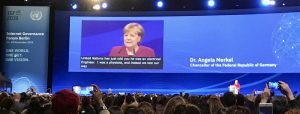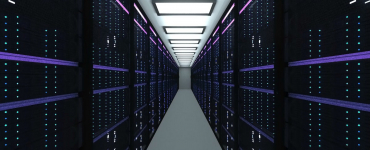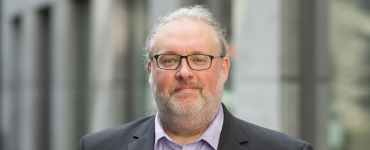30 years after the wall came down, Berlin this week is playing host to the Internet Governance Forum’s 2019 conference. For the opening ceremony on Tuesday, 26th November, 2,400 participants were present in person, and thousands more across 5 continents connected virtually through the IGF’s remote hubs.
The main focal topics of the IGF 2019 are Data Governance, Digital Inclusion, and Security, Safety & Resilience. However, the central question of the conference was presented in the opening ceremony as: How to ensure an open and free web in the future, and how to foster and safeguard the IGF’s maxim of “one world, one net, one vision”?
Collective responsibility for the future of the Internet – maximizing benefits & containing malicious use
António Guterres, Secretary-General of the United Nations, as the first of two keynote speakers at the opening ceremony, started by commenting that little can have more relevance to our lives and our shared future than the governance of the Internet. He mentioned the parallels between himself and the other high-level opening speaker, German Chancellor Dr. Angela Merkel: both began their careers in the sciences – he in electrical engineering, Merkel in physics – and both had moved into policy-making positions (joking that they had both lost their way). His message was that they are a rarity – that there is an absence of technical understanding and expertise among policy makers, which means that policy remains well behind the rapidly-paced trial-and-error nature of private enterprise in the technological sphere.
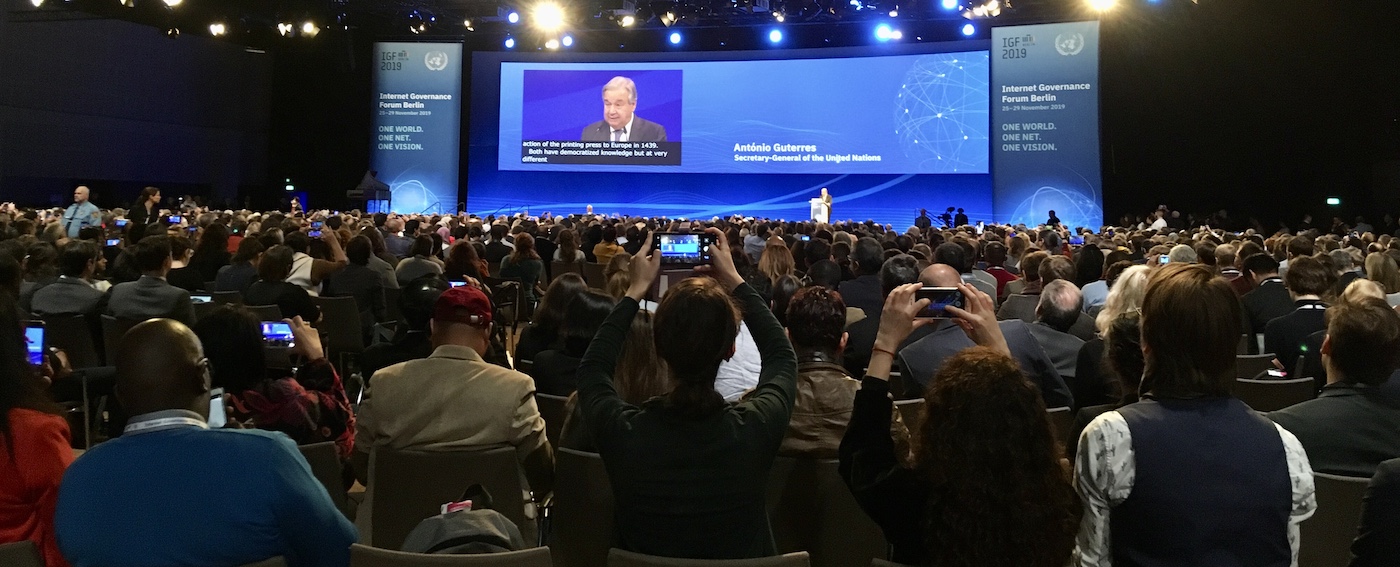
Guterres questioned what kind of a future it is that we want, and where the Internet is taking us as a global society – whether the Internet will result in more or less equality, or more or less security and safety. Collective responsibility, he said, is needed to give direction to the future development of the Internet, in order to maximize the benefits as well as contain the malicious use of it. He spoke of the common aspiration of those involved in the IGF for a universally accessible free, secure, and open Internet, but spoke of the challenges and the risks to this goal.
Counteracting the digital, financial & political divides
In particular, he mentioned the need to counteract the growing divisions visible globally: the digital divide, between those who have affordable access to the Internet and those who do not; the financial divide between rich and poor, which is becoming more acute with the surge in cyber billionaires in recent years; and the political divide, in which he sees the current status as one of continuous low-intensity cyber conflict between states, with the risk of significant geo-political rupture through state-sanctioned hostile use of cyber space.
He emphasized the importance of working together in contexts like the IGF to reduce these divides. The IGF offers the opportunity for people from all over the world, from governments, the technical community, academia, and the civil society, to come together and learn from each other, and then to take these ideas and lessons back to promote norm setting in their respective home countries and communities. A global commitment on digital trust and security is necessary to prevent further political division, he concluded.
Defending freedom on and off the Internet
Following this, Chancellor Angela Merkel took the stage, welcoming the delegates, and thanking them for bringing their ideas for the future of the Internet to share at the IGF. She stressed that it is important to look at the future of the Internet together, multilaterally, to develop a common understanding of what the future of the Internet should look like.
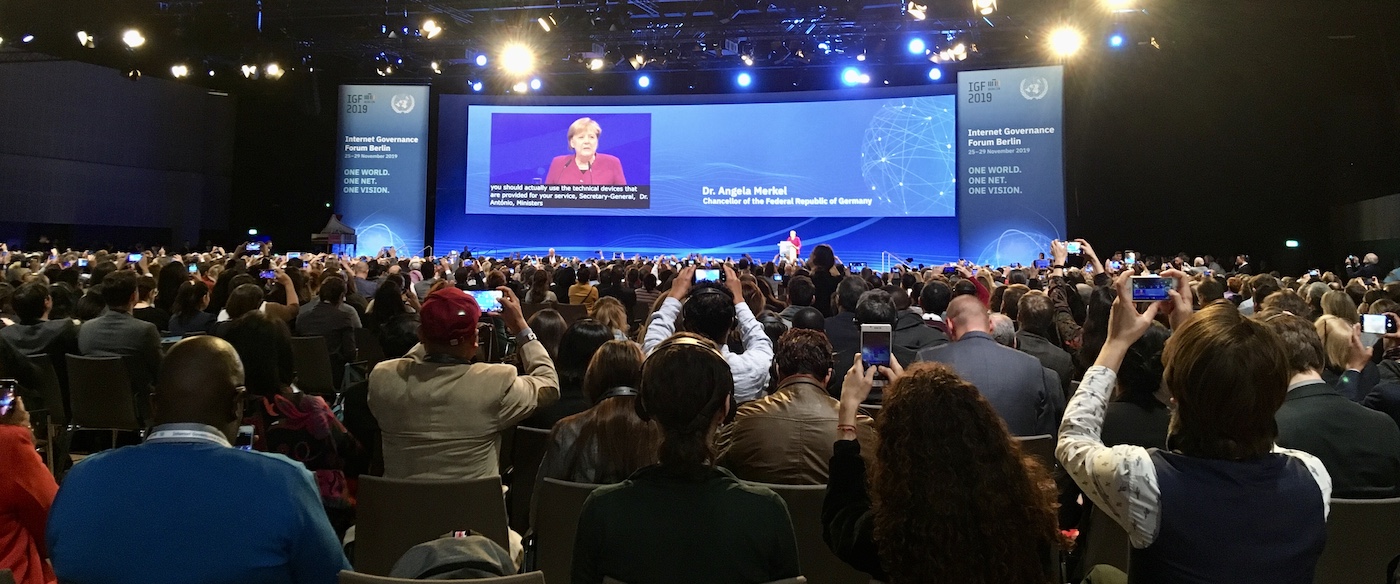
She asked what principles from the analogue world should be transferred to the digital world, and mentioned one in particular: freedom. She called on the delegates to work together to define jointly how and where freedom must be protected, what it actually means, and where the limits are. Merkel – as a German, and in particular, an East German – spoke of the importance of the concept of freedom to modern Germany – 30 years after the fall of the Berlin Wall, and coincidentally also 30 years after the beginnings of the world wide web.
Interconnection ecosystems in Frankfurt, Amsterdam, and London representing the heart of the modern economy in Europe
Merkel went on to say that the Internet was always technically conceived to transcend territorial borders, on order to connect all people in the world. For those of us who have access to the Internet, she said, the Internet has penetrated all areas of life and has joined the continents through the flow of data. She spoke of the global data flows, of the undersea cables joining the continents, of the interconnection ecosystems in Frankfurt, Amsterdam, and London that represent the heart of the modern economy in Europe. But she also spoke of non-democratic governments who are using this same technology to infringe the freedom of their citizens, and she alluded to certain governments and global companies building parallel worlds within isolated structures – closed off from the principles of the free and open Internet.
Retaining digital sovereignty while acting multilaterally
The IGF, Merkel said, stands against these trends, and she called on delegates to consider how it will be possible to retain digital sovereignty and at the same time act multilaterally. Digital sovereignty, she explained, is not about protectionism – rather, it is about the capacity to shape digital transformation – both as an individual and as a society – in a self-determined manner. Guide rails, guiding principles, are needed that are based on our shared values – they were needed in the industrial revolution, and they are today in the digital revolution.
She reiterated that this needs to be achieved together. While the strength of a network is measured on the number of members within the network, isolation would lead to a splintered Internet. Attacks on Internet connectivity, she continued, has become a dangerous weapon of certain governments, something which needs to be counteracted globally. She concluded by saying that if we want to use the Internet globally, then we need to think globally. That far from everything that can be done online is necessarily desirable. That we need not only to speak about what we want, we also need to speak about what we don’t want. That technology must serve people. And finally, that the UN and the IGF are fundamental for ensuring an open, free and secure Internet.
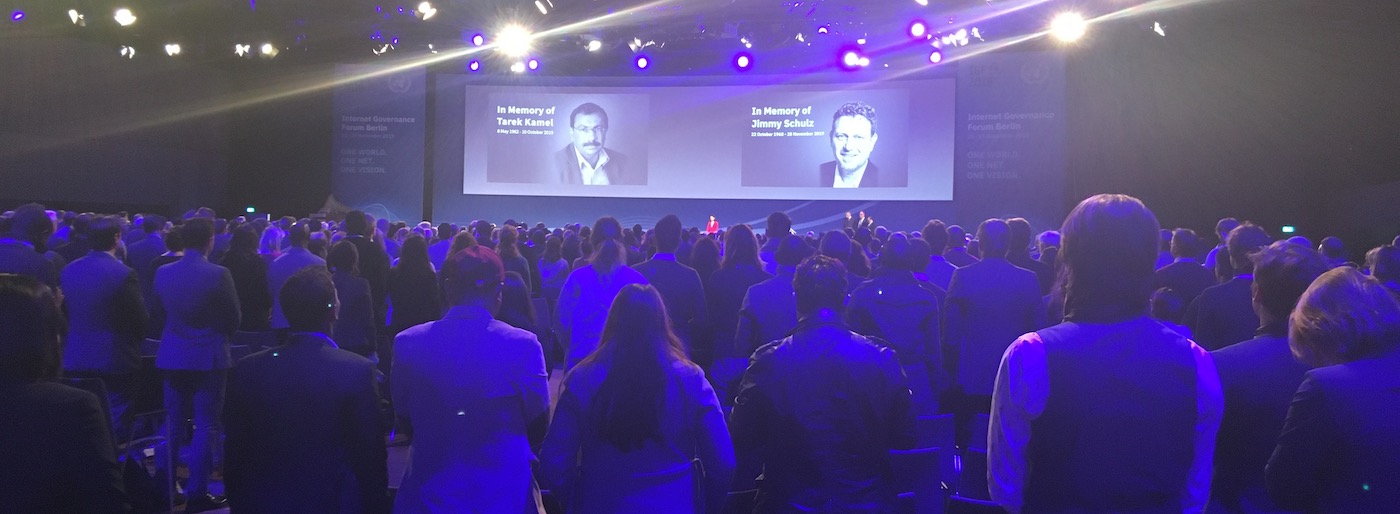
After rousing applause, the mood of the opening ceremony took a more reflective note, as the passing of two shining personalities of the Internet governance community in 2019 was commemorated: Tarek Kamel, Sr Advisor to President & SVP, Government and IGO Engagement at ICANN, who passed away on 10th October, and Jimmy Schultz, German politician and campaigner for privacy, encryption, and Internet governance, who sadly passed away on Day Zero of the IGF 2019, Monday 25th November. Both will be sorely missed by the community.
